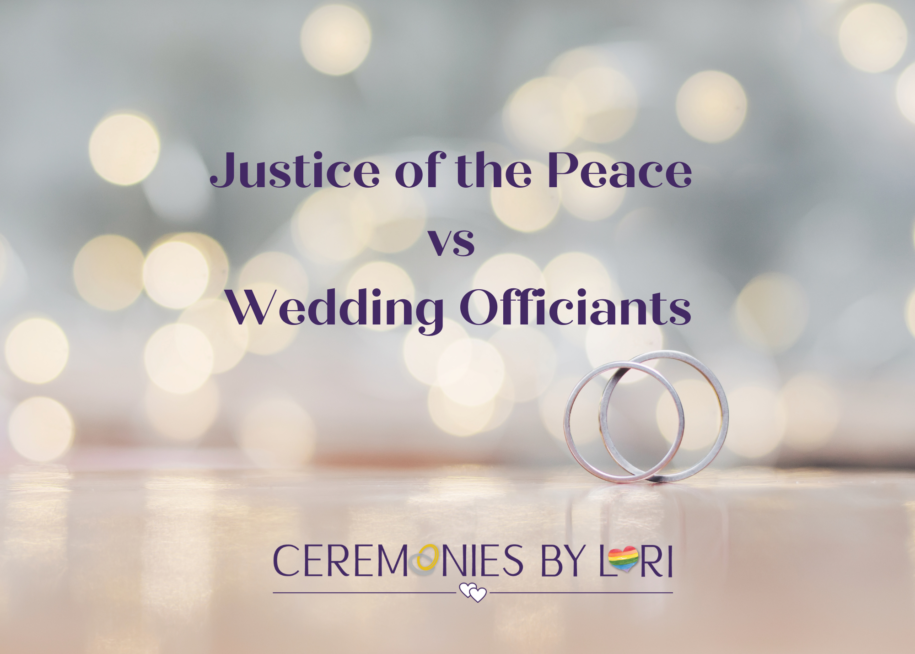Your wedding day is a once-in-a-lifetime event, and one of the most important decisions you’ll make during the planning process is selecting the person who will officiate your ceremony. While there are various options available, two common choices are a Justice of the Peace (JP) and a Wedding Officiant. In this blog post, we’ll delve into the differences between these two officiant types and explore why you might choose one over the other.
Justice of the Peace (JP):
A Justice of the Peace is a government-appointed or elected official with a range of legal responsibilities. (Some states do not have Justice of the Peace, or they may be called Magistrates.) Here are the key aspects of having a JP officiate your wedding:
Legal Authority: JPs have the legal authority to marry couples and sign marriage licenses, making your union legally binding in the eyes of the law.
Professional Background: Many JPs have a legal or judicial background, which means they are well-versed in legal procedures and may also handle matters such as small claims court cases and civil disputes.
Location: JPs typically officiate weddings at government offices or courthouses, which can provide a straightforward and no-frills option for your ceremony.
Why Choose a JP:
- Legal Formality: If you prioritize the legal aspect of your marriage, a JP is an ideal choice. They ensure that your marriage complies with all legal requirements.
- Convenience: JPs are usually easy to find, and their schedules are often flexible. This can be especially advantageous if you need a last-minute ceremony or have limited availability.
Wedding Officiant:
A wedding officiant is a more flexible and personalized option for your ceremony. Officiants can be religious leaders, civil celebrants like Ceremonies by Lori, or even friends or family members who have obtained the necessary credentials. Here’s what you need to know about choosing an officiant:
Personalization: Officiants excel in creating personalized ceremonies that reflect your love story, values, and preferences. You have greater flexibility in shaping the ceremony to make it truly unique and meaningful.
Location: Officiants can perform ceremonies in a variety of locations, including churches, outdoor venues, beaches, and private homes, giving you the freedom to choose a setting that resonates with you.
License Signing: It’s important to check the credentials of your chosen officiant, as their ability to sign marriage licenses can vary.
Why Choose a Wedding Officiant:
- Personal Touch: If you want a ceremony that is a reflection of your love and relationship, an officiant can craft a unique and meaningful experience.
- Location Flexibility: Officiants can perform ceremonies virtually anywhere, making it easier to select a venue that suits your vision.
- Personal Connection: Many couples feel more comfortable with an officiant who knows them personally, whether it’s a friend, family member, or a chosen officiant with whom they’ve built a rapport.
In conclusion, the choice between a Justice of the Peace and a Wedding Officiant boils down to your priorities and preferences. If you’re looking for a straightforward and legally binding ceremony, a JP may be the way to go. However, if you desire a more personalized and emotionally meaningful ceremony in a location of your choice, a wedding officiant could be the perfect fit. Ultimately, the decision should align with your vision for your special day and the level of personalization you desire to make your wedding truly unforgettable.

